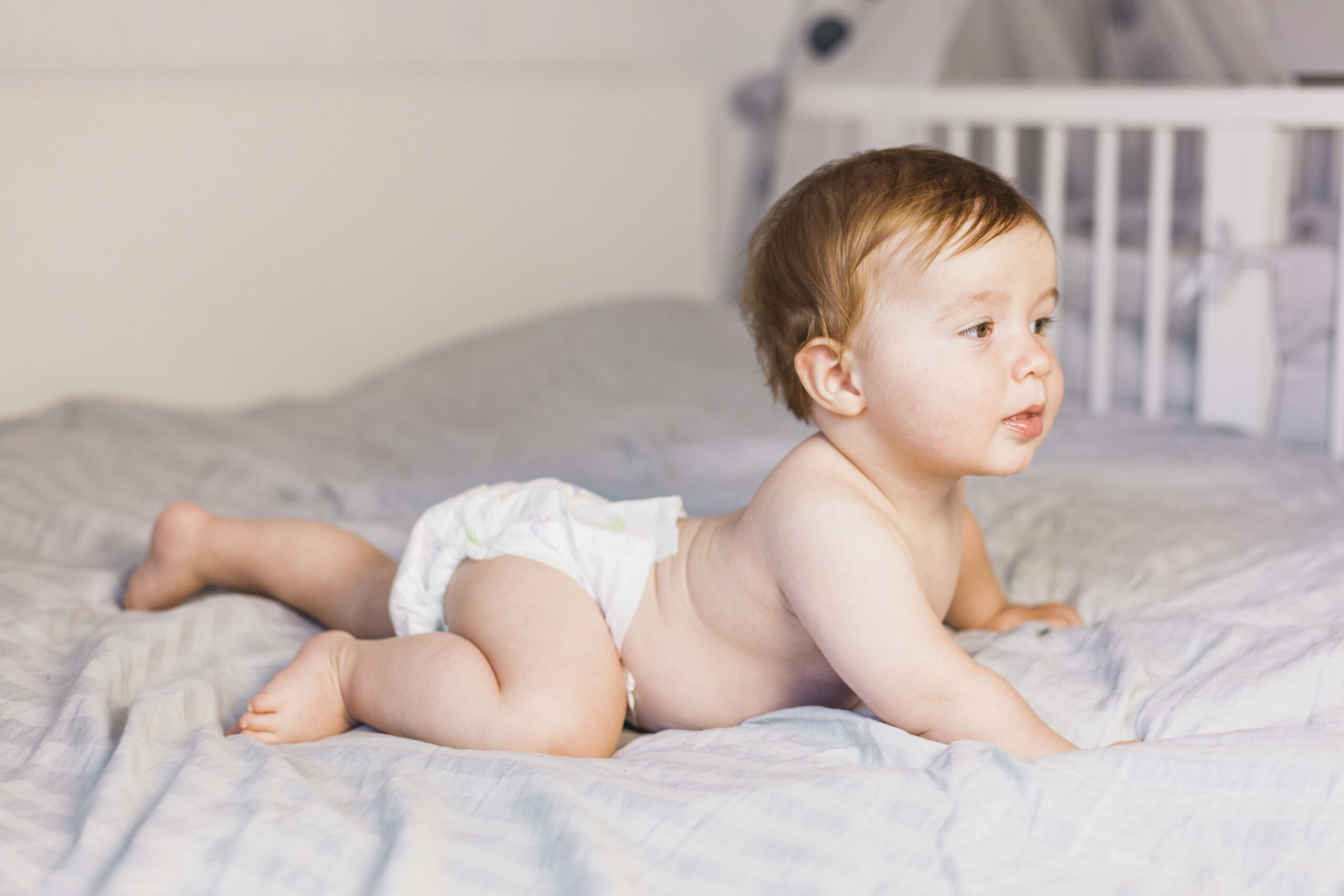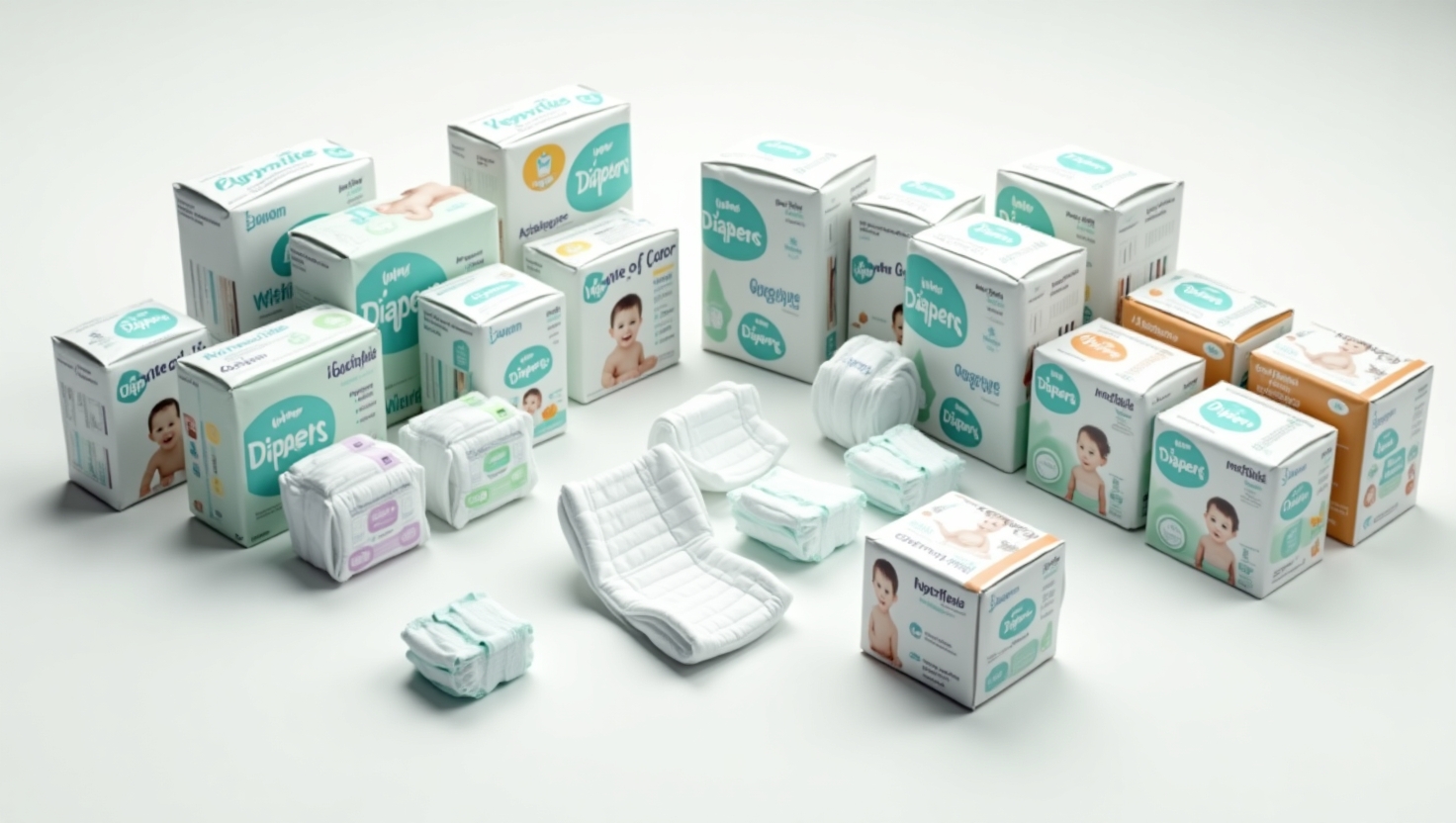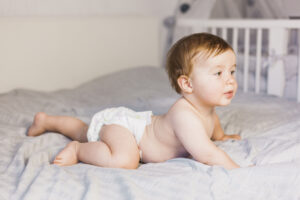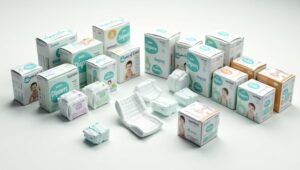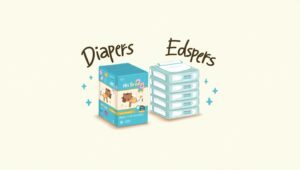How Long Will 200 Diapers Last a Newborn?
Becoming a parent for the first time comes with a whirlwind of questions—and one of the most common concerns is how many diapers your newborn will go through in those first few weeks. If you’ve just stocked up with a pack of 200 diapers, you might be asking: how long will they last?
Let’s dive into everything you need to know to estimate diaper usage for your newborn, how their needs change with time, and what factors could influence how quickly you go through those 200 diapers.
Understanding Newborn Diaper Needs
Newborns are adorable, tiny bundles of joy, but they’re also frequent poopers and pee-ers. In fact, it may seem like all they do is eat, sleep, and fill their diapers—because for the first few weeks, that’s exactly the case.
The frequency of diaper changes in the early days depends on a few factors:
- Feeding habits (breastfed vs formula-fed)
- Baby’s digestive system
- Wetness sensitivity
- Pediatrician advice or personal hygiene standards
But to start, let’s break down an average.
Average Diaper Usage Per Day
In the newborn phase, babies generally require:
- 8 to 12 diaper changes per day
This range might sound excessive, but it includes both wet and soiled diapers. On average, most newborns urinate every 1 to 3 hours and have several bowel movements a day—especially in the first week.
Let’s calculate based on two usage rates:
| Diapers Per Day | Days 200 Diapers Will Last |
|---|---|
| 8 diapers/day | 25 days |
| 10 diapers/day | 20 days |
| 12 diapers/day | 16.5 days |
So, if you’re changing about 10 diapers a day, your 200-pack will last about 20 days. That’s just under three weeks.
The First Week Is Intense
During the first week of life, your baby’s diaper output can be unpredictable and frequent. It’s a time when both your baby’s body and your routines are adjusting.
Here’s a typical diaper schedule for the first week:
- Day 1–2: Expect only 1–2 wet diapers and 1–2 dirty ones per day.
- Day 3–4: Urine output increases to about 3–4 wet diapers.
- Day 5–7: Around 6–8 wet diapers, plus 3–4 soiled ones.
By the end of the first week, your baby could be using up to 10–12 diapers daily.
Breastfed vs. Formula-Fed Babies
How your baby is fed can affect how often you need to change them.
Breastfed Newborns
- Typically poop more frequently, especially in the early weeks.
- Their stools are often looser, leading to more frequent diaper changes.
Formula-Fed Newborns
- May have fewer bowel movements.
- Stools are usually firmer and less frequent.
On average, the total diaper usage might not vary drastically, but breastfed babies can lean toward the higher end of the diaper usage scale—10 to 12 per day.
Nighttime Diapering
Some parents change diapers in the middle of the night after every feeding. Others may let the baby sleep through if there’s only a light wetness and no poop.
Changing habits vary based on:
- Sensitivity to wetness
- Risk of diaper rash
- Sleep patterns
- Use of super-absorbent overnight diapers
If you’re changing the baby once or twice in the night, that adds 2 more diapers to your daily count.
Growth and Diaper Size Transition
It’s important to note that newborns grow quickly. Your 200 diapers might all be Newborn (NB) size, but your baby may outgrow that size before you even finish the box—especially if they were born at 8 pounds or more.
Size Considerations
- Newborn diapers typically fit babies up to 10 lbs.
- Babies often gain about 0.5–1 ounce per day in the first month.
- Many outgrow the newborn size by 2–3 weeks.
If your baby grows fast or was born larger, they might fit into Size 1 diapers before you finish your 200-pack. In that case, some diapers might go unused unless you save them for a future child or donate them.
Planning Ahead: Should You Buy More?
If you’ve started with 200 diapers, you’re in a good place for the first 2–3 weeks. But you’ll definitely need more.
What to Buy Next
- Another 200–300 diapers for the rest of the first month
- Consider buying the next size up (Size 1) to be prepared
- Some parents like to mix boxes of NB and Size 1 during the first month to transition gradually
Diaper Rash and Extra Changes
Diaper rash is a common concern with newborns, especially if wet diapers sit too long. If your baby develops a rash, you may need to:
- Change diapers more frequently
- Use diaper cream with every change
- Switch to more breathable or sensitive diapers
This can increase your daily usage by a couple of diapers, making your 200-pack last only 15–18 days instead of 20–25.
Twins or Multiples? Double (or Triple) the Math
If you have twins or triplets, you’ll burn through diapers at lightning speed.
With twins:
- 8–10 diapers per baby = 16–20 per day
- 200 diapers will last about 10–12 days
Planning for multiples means bulk purchasing becomes your best friend.
How to Stretch Your Diapers
While your baby’s needs should always come first, there are smart ways to make the most of your supply.
Tips:
- Use absorbent overnight diapers to avoid unnecessary nighttime changes.
- Change before feedings if it keeps your baby more comfortable and saves you an extra change later.
- Keep a diaper log to track output and avoid over-changing out of habit.
Just remember: Never sacrifice your baby’s hygiene to save a diaper. Stretching should be about smart timing, not delaying necessary changes.
Real Parent Experiences
Every parent’s experience is slightly different, but here are some general patterns:
- Day 1–7: 6–8 diapers/day (lower output)
- Week 2–4: 10–12 diapers/day (peak output)
- After Month 1: Diaper needs stabilize to 6–8/day
Some parents report needing:
- Around 600 diapers in the first two months
- Up to 1,000 diapers in the first 3 months
So yes, 200 diapers go fast—but they’re a great starting point.
Subscription Services and Stocking Up
Many parents choose diaper subscription boxes that deliver every few weeks. These often include 180–220 diapers per shipment, which aligns with the 200-diaper threshold we’re discussing.
These services:
- Help avoid emergency store runs
- Offer discounts
- Allow size adjustments as your baby grows
If you’re not using a subscription, consider:
- Buying diapers in bulk during sales
- Storing unopened boxes of Size 1 for smooth transitioning
- Avoiding too many NB diapers at once to prevent overstocking a size your baby outgrows quickly
Diaper Waste and Environmental Impact
Using 200 diapers in less than a month might raise questions about waste. Each disposable diaper can take hundreds of years to decompose. If sustainability is a concern:
- Look into biodegradable diaper options
- Try reusable cloth diapers, even part-time
- Reduce unnecessary changes when it’s only slightly wet
While convenience and health come first, these small changes can reduce your family’s footprint.
Final Thoughts: How Long Will 200 Diapers Last?
To recap, if you’re changing your baby 10 times a day, your 200 diapers will last about 20 days.
Here’s a quick breakdown:
- Light usage (8/day) → lasts ~25 days
- Moderate usage (10/day) → lasts ~20 days
- Heavy usage (12/day) → lasts ~16.5 days
Your baby’s needs will change quickly, so view your first 200 diapers as a starter supply. You’ll need more soon, but it gives you breathing room to adjust, observe your baby’s patterns, and decide what kind of diapering system works best for your family.
Key Takeaways
- 200 diapers will typically last a newborn 16–25 days depending on usage.
- Babies use 8–12 diapers per day in the first few weeks.
- You may need 600–800 diapers in the first two months.
- Feeding method, baby’s size, and hygiene preferences all influence diaper use.
- Be flexible with sizing—newborns may outgrow NB size quickly.
- Consider sustainable options if you’re mindful of environmental impact.
